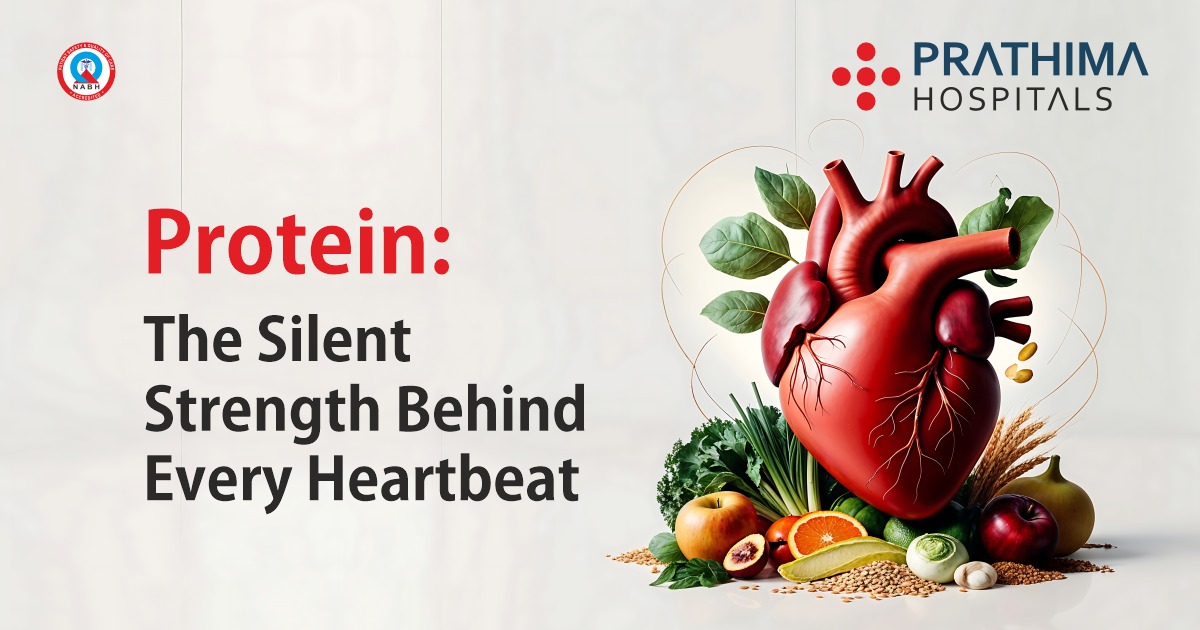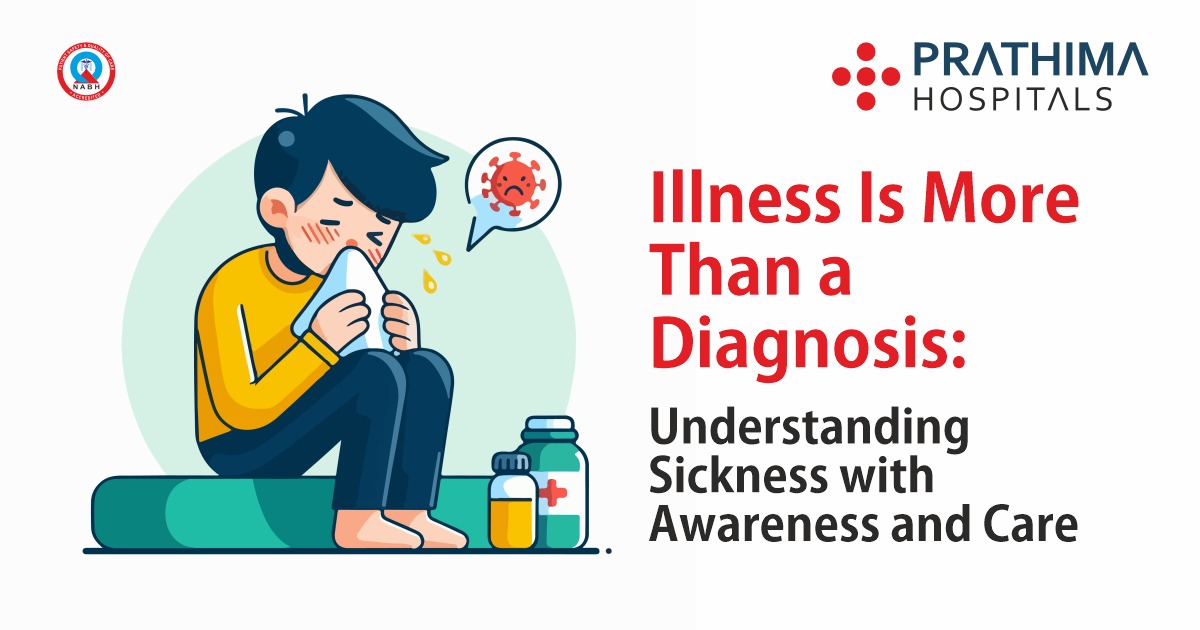Can Lack of Calcium Cause Heart Problems?

Calcium for Heart Health
Introduction:
Calcium is a vital mineral that plays a crucial role in maintaining various physiological functions within the human body. According to the Best Cardiologist in Hyderabad, it is primarily known for its role in promoting strong bones and teeth. However, calcium’s significance extends far beyond the skeletal system. This essential mineral also plays a crucial role in maintaining the proper functioning of the cardiovascular system. The heart, being the engine that drives the circulatory system, relies on an intricate balance of electrolytes, including calcium, to ensure smooth and efficient pumping of blood throughout the body.
In this article, we will explore the relationship between calcium deficiency and heart problems, delving into the impact of low calcium levels on heart health and the potential risks associated with inadequate calcium intake. Understanding this relationship can help individuals make informed choices about their dietary habits and lifestyle, ultimately leading to better heart health.
The Role of Calcium in the Body:
Calcium is an essential mineral that plays a fundamental role in various physiological functions within the human body. It is perhaps best known for its role in promoting strong bones and teeth, but its significance extends far beyond the skeletal system. Calcium is involved in numerous cellular processes that are crucial for overall health and well-being. Let’s explore the role of calcium in the body in more detail:
- Bone Health: The majority of calcium in the body, approximately 99%, is stored in the bones and teeth. Calcium provides the structural strength and rigidity to bones, making them strong and resilient. Throughout our lives, bones undergo a continuous process of remodeling, with old bone tissue being broken down and replaced by new bone tissue. Calcium is essential for this remodeling process, ensuring that bones remain strong and healthy.
- Muscle Contraction: One of the most critical functions of calcium is its role in muscle contraction. This includes both skeletal muscles, which control voluntary movements, and smooth muscles, which control involuntary movements in organs like the digestive system and blood vessels. When a nerve signal stimulates a muscle to contract, calcium is released from specialized storage sites within muscle cells (the sarcoplasmic reticulum). The calcium binds to proteins, causing them to change shape and allowing the muscle fibers to slide past each other, leading to muscle contraction.
- Nerve Function: Calcium also plays a crucial role in nerve function. Nerve cells, or neurons, communicate with each other and with muscles through electrical signals. When an electrical signal travels down a neuron, it reaches the end of the nerve cell and triggers the release of chemical messengers called neurotransmitters. The release of these neurotransmitters allows the signal to pass from one neuron to the next or from a neuron to a muscle cell. Calcium is essential for the release of neurotransmitters, facilitating the transmission of nerve impulses.
- Blood Clotting: In response to injury, the body forms blood clots to prevent excessive bleeding. Calcium is an integral part of the blood clotting process. When a blood vessel is damaged, platelets in the blood become activated and aggregate at the injury site. Calcium ions are necessary for platelet activation and the formation of a fibrin network, which helps reinforce the platelet plug, forming a stable blood clot.
- Enzyme Function: Enzymes are proteins that catalyze biochemical reactions in the body. Many enzymes require calcium ions as a cofactor to function properly. Calcium helps regulate the activity of these enzymes, contributing to various essential processes, such as cellular energy production and hormone secretion.
- Cell Signaling: Calcium ions serve as vital second messengers in various cell signaling pathways. When certain hormones or growth factors bind to receptors on the cell surface, it triggers a cascade of intracellular events that ultimately lead to the cell’s response. Calcium ions often act as intermediaries in these signaling pathways, transmitting the signal from the cell membrane to the cell’s interior.
- Blood Pressure Regulation: Calcium is involved in blood vessel constriction and dilation, influencing blood pressure. As said by the Best Cardiologist in Kukatpally, when calcium levels are low, blood vessels may contract more than necessary, leading to increased resistance and higher blood pressure levels.
- Heart Function: The heart, being a muscular organ, relies heavily on calcium for proper functioning. Calcium is critical for the generation of electrical signals that regulate the heartbeat. It allows the cardiac muscle cells to contract and relax efficiently, enabling the heart to pump blood effectively throughout the body.
- Acid-Base Balance: Calcium also plays a role in maintaining the body’s acid-base balance (pH levels). It acts as a buffer, helping to neutralize excess acidity in the body and maintain a stable pH environment.
- Hormone Regulation: Calcium is involved in the regulation of various hormones, including parathyroid hormone (PTH) and calcitonin. PTH helps maintain calcium levels in the blood by promoting calcium release from bones and enhancing calcium absorption in the intestines. Calcitonin, on the other hand, inhibits the release of calcium from bones, helping to maintain calcium homeostasis.
Calcium and Heart Health:
Adequate calcium levels are crucial for maintaining the rhythmic beating of the heart and ensuring proper cardiac function. When calcium levels are insufficient, the heart’s ability to contract and relax efficiently can be compromised, leading to potential heart problems. Some of the heart-related conditions that can arise due to a lack of calcium include:
- Arrhythmias: Arrhythmias are irregular heart rhythms that can lead to a fast, slow, or uneven heartbeat. Calcium ions are involved in generating the electrical signals that regulate the heartbeat. When calcium levels are imbalanced, it can disrupt the electrical signals, leading to arrhythmias.
- Hypertension (High Blood Pressure): Calcium also influences blood vessel constriction and dilation. When calcium levels are low, blood vessels may contract more than necessary, leading to increased resistance and higher blood pressure levels.
- Coronary Artery Disease: Calcium is involved in various processes that affect the health of blood vessels. Calcium build-up in the walls of coronary arteries can contribute to atherosclerosis, a condition in which the arteries narrow due to plaque formation. This constrains the blood flow to the heart, elevating the likelihood of experiencing heart attacks.
- Heart Failure: Chronic calcium deficiency may lead to weakened heart muscle over time, potentially contributing to heart failure, a condition in which the heart cannot pump enough blood to meet the body’s needs.
Causes of Calcium Deficiency:
Several factors can contribute to calcium deficiency, some of which are modifiable, while others are not. Understanding these factors can help individuals take proactive measures to maintain optimal calcium levels and heart health. A few prevalent reasons for inadequate calcium levels encompass:
- Inadequate Dietary Intake: As per the Best Cardiologist in Kachiguda,a diet lacking in calcium-rich foods such as dairy products, leafy greens, and fortified foods can lead to low calcium levels.
- Vitamin D Deficiency: The intestines require vitamin D to facilitate the absorption of calcium. Insufficient sunlight exposure, malabsorption issues, or inadequate dietary intake of vitamin D can impair calcium absorption.
- Age-related Changes: As people age, their bodies may become less efficient at absorbing and utilizing calcium, increasing the risk of deficiency.
- Medical Conditions: Certain medical conditions, such as chronic kidney disease, celiac disease, and hyperparathyroidism, can interfere with calcium absorption and regulation.
- Medications: Some medications, including certain diuretics and anticonvulsants, may interfere with calcium absorption or increase calcium excretion, leading to lower calcium levels.
- Lifestyle Choices: Excessive alcohol consumption, smoking, and a sedentary lifestyle can negatively impact calcium metabolism.
The Link between Calcium and Other Nutrients:
Calcium does not function in isolation but rather interacts with other nutrients to maintain overall health. Two vital nutrients that interact with calcium are vitamin D and magnesium:
- Vitamin D: As mentioned earlier, vitamin D is crucial for calcium absorption in the intestines. Without adequate vitamin D, the body cannot efficiently utilize the calcium present in the diet. Sunlight is a primary source of vitamin D, and deficiency can be common in regions with limited sunlight exposure or in people with lifestyles that limit outdoor activities.
- Magnesium: Magnesium is another essential mineral that works in tandem with calcium. It plays a role in muscle function, including the heart muscle. Adequate magnesium levels facilitate the proper functioning of calcium channels in the heart and prevent irregular heart rhythms.
Symptoms of Calcium Deficiency:
Symptoms of calcium deficiency may not be immediately apparent, as the body prioritizes maintaining calcium levels in the blood within a narrow range. Over time, however, a lack of calcium can manifest in various ways.
Several typical indications of calcium deficiency comprise:
- Muscle cramps and spasms
- Numbness and tingling in extremities
- Fatigue and weakness
- Dental problems, such as weak teeth and brittle enamel
- Osteoporosis and bone fractures
- Heart palpitations and irregular heartbeats
- High blood pressure
Importantly, it should be acknowledged that these symptoms may also arise due to a variety of other conditions. If someone experiences any of these symptoms, they should consult a healthcare professional for proper evaluation and diagnosis.
Prevention and Management of Calcium Deficiency:
Preventing calcium deficiency is crucial for maintaining good heart health and overall well-being. Here are some strategies to prevent or manage calcium deficiency:
- Balanced Diet: Ensure that your diet includes calcium-rich foods such as dairy products (milk, cheese, yogurt), leafy green vegetables (kale, broccoli, bok choy), nuts and seeds (almonds, chia seeds), and fortified foods (calcium-fortified orange juice, tofu).
- Vitamin D: Get adequate sunlight exposure or consider vitamin D supplements, especially if you live in regions with limited sunlight or have a vitamin D deficiency.
- Magnesium: Consume foods rich in magnesium, such as nuts, seeds, whole grains, and leafy greens, to support calcium utilization.
- Supplements: If you are unable to meet your calcium requirements through diet alone, consider calcium supplements. However, it’s essential to consult with a healthcare professional before starting any supplements to determine the appropriate dosage and assess potential interactions with other medications.
- Lifestyle Modifications: Adopt a healthy lifestyle that includes regular physical activity, avoiding excessive alcohol consumption and smoking, and managing stress.
- Medical Management: If calcium deficiency is caused by an underlying medical condition, work closely with the Best Cardiology Hospital in Hyderabad, Prathima Hospitals to address the root cause and manage the condition effectively.
Conclusion:
Calcium deficiency is a serious concern that can have significant implications for heart health and overall well-being. The heart relies on a delicate balance of electrolytes, including calcium, to maintain its regular rhythmic contractions. When calcium levels are inadequate, the heart’s ability to function efficiently can be compromised, potentially leading to various heart problems.
Maintaining optimal calcium levels requires a combination of a balanced diet, sufficient vitamin D intake, and attention to other lifestyle factors. Individuals should be proactive in identifying and addressing potential risk factors for calcium deficiency to support heart health and overall wellness. Consulting with healthcare professionals can provide personalized guidance and ensure that individuals receive appropriate recommendations for preventing and managing calcium deficiency. By taking the necessary steps to maintain proper calcium levels, we can safeguard our hearts and lead healthier, more fulfilling lives.
.
.
.
.
.
For more details:
📞:: 733 733 6600 | 040 4345 4345
🌐:: https://prathimahospitals.com/book-appointment/






Warning: Undefined variable $req in /home/u885608126/domains/prathimahospitals.com/public_html/wp-content/themes/prathimahospitals/functions.php on line 294
Warning: Undefined variable $commenter in /home/u885608126/domains/prathimahospitals.com/public_html/wp-content/themes/prathimahospitals/functions.php on line 295
Warning: Trying to access array offset on value of type null in /home/u885608126/domains/prathimahospitals.com/public_html/wp-content/themes/prathimahospitals/functions.php on line 295
Warning: Undefined variable $aria_req in /home/u885608126/domains/prathimahospitals.com/public_html/wp-content/themes/prathimahospitals/functions.php on line 295
Warning: Undefined variable $req in /home/u885608126/domains/prathimahospitals.com/public_html/wp-content/themes/prathimahospitals/functions.php on line 298
Warning: Undefined variable $commenter in /home/u885608126/domains/prathimahospitals.com/public_html/wp-content/themes/prathimahospitals/functions.php on line 299
Warning: Trying to access array offset on value of type null in /home/u885608126/domains/prathimahospitals.com/public_html/wp-content/themes/prathimahospitals/functions.php on line 299
Warning: Undefined variable $aria_req in /home/u885608126/domains/prathimahospitals.com/public_html/wp-content/themes/prathimahospitals/functions.php on line 300
Warning: Undefined variable $commenter in /home/u885608126/domains/prathimahospitals.com/public_html/wp-content/themes/prathimahospitals/functions.php on line 303
Warning: Trying to access array offset on value of type null in /home/u885608126/domains/prathimahospitals.com/public_html/wp-content/themes/prathimahospitals/functions.php on line 303